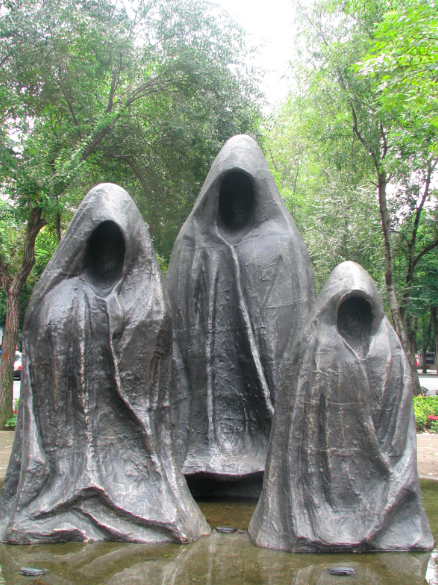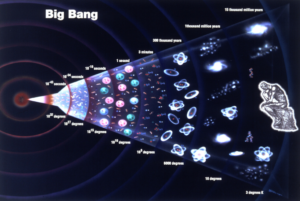A Fantasy Character Looks At Science Fiction
 Based on an early review of the book as “a solid bit of social science fiction,” the reader bought a copy, only to find he’d been hoodwinked. Righteously disgruntled, he wrapped up his resultant two-star review by saying, “Characters reciting scripture may be fantasy but its not remotely hard scifi.”
Based on an early review of the book as “a solid bit of social science fiction,” the reader bought a copy, only to find he’d been hoodwinked. Righteously disgruntled, he wrapped up his resultant two-star review by saying, “Characters reciting scripture may be fantasy but its not remotely hard scifi.”
True, the book in question is not hard scifi. But I know a lot of people—in fact, I’m one of them—who memorize scripture. There’s nothing fantastic about it; we’re ordinary people leading ordinary lives. (BTW, have you ever noticed it takes about the same length of time to recite Hebrews 11 as it does to shower? Try it!)
Want to talk about unrealistic? Here’s one for you: Once there was a bit of nothing. It packed itself so tightly together that it blew up. No joke! Though no force existed to press that void together, and there was nothing present to ignite this nonexistence, all that nada went BOOM in a very big way. The heat created by this intensely compressed absence-of-all-matter-and-everything-else being suddenly (did time exist yet? I’m not clear on that part) and violently flung into nowhere from the center of nowhere was intense. As it cooled—still expanding, nothingness though it was—it converted energy (which apparently was created by the explosion, though again, I’m not sure) into subatomic particles. And that, kiddies, was the origin of all the matter in the universe.
A Wikipedia article on the subject states this “is a well-tested scientific theory and is widely accepted within the scientific community.” Hmm. Sounds more like science fiction to me, but what do I know? I’m a fantasy character.
Despite the fact that I don’t live in the real world, I don’t belittle real science. I have a humble respect for the many brilliant and dedicated people who have devoted themselves to learning what makes things tick and discovering ways to make all our lives safer, healthier, and less burdensome. Simply put, science rocks.
It’s the philosophers I have a problem with. Those who, in their zeal for promoting their unsustainable theories, suppress evidence, ridicule opposing ideas, ignore established scientific principles, promote hoaxes, and, when the weight of evidence collapses one of their constructs, come up with an even less likely theory to replace it. It’s an epic tale involving spiritism and seances, conspiracies, deception, and strong-arm tactics.
But, take heart: the truth will out, as they say—though at present, it seems a long time coming. What do we do in the meantime?
We must be discerning, for starters. We must learn how to recognize the real truth (John 17:17) and not let anyone talk us out of it. We’ll run up against a bit of difficulty along the way, and we must apply wisdom (Proverbs 1:7) in every situation.
Also, it’s important that we not abandon our children’s education to secular teachers. Without resorting to the opposition’s tactics of rancor and ridicule, let’s look at the schoolwork our kids are assigned. We can show our kids what’s real and what’s fairy tale, even when the fantasy is “widely accepted within the scientific community.” Teach them how to be discerning with love, pointing out that most who believe the lie are honestly mistaken.
We don’t need to be obnoxious about it, but neither should we turn a blind eye to the travesty being perpetrated all around us. Speculative fiction is fun, but let’s not forget the real story. We should read the truth, write the truth, speak the truth, live the truth. And if people accuse us of living in a fantasy world? Invite them to join us there. Their reality is stranger than our fiction.






































Wait, what was the point of this article? We go from the problems of dialog to a not-particularly-funny satire on science to a heavy pro-homeschool message.
Homeschooling isn’t mentioned or even implied!
She says parents should not “abandon our children’s education to secular teachers”. But she doesn’t say that children should not be taught by secular teachers. Rather, Christian parents should not abdicate all responsibility to those teachers, but “look at the schoolwork our kids are assigned,” and “teach them to be discerning.”
“Abandon our children’s education to secular teachers” and “the opposition’s tactics” and “travesty being perpetrated around us” is right up the alley of the heavy pro-homeschool peeps that I’ve encountered.
If you’re going to complain about atheists using science against Christians and/or the concept of science itself, I think it needs a better handling than “Your thought system is fantasy, like orcs and elves!” “Oh yeah? Well, YOUR thought system is fantasy!”
Actually, “your thought system is fantasy” is a perfectly legitimate criticism to level against those who claim that science requires people to believe that everything came from nothing, that the second law of thermodynamics used to operate in reverse, and that everything we know about the creation of complexity is nothing more than a series of meaningless anecdotes when compared with the vast sweep of history during which random unguided chance supposedly developed every molecule, cell, and organism in existence. In fact, “your thought system is fantasy” is really the only thing one can say to those who accuse Christians of scientific illiteracy while abjectly refusing — on philosophical principle and without empirical evidence — to acknowledge the fact that all creation screams out “Someone made me!”
Theists and atheists both live by faith. The difference is that theists are at least self-aware.
There are Christian private schools, but yeah, you have to be careful here. Most science really isn’t that controversial, and you don’t want to try and argue something that’s out of your depth and setting your kids up for heartbreak later. Especially with budding SF readers.
That doesn’t make sense. You’re accusing her of promoting a heavy pro-homeschool message because she says some of the same things that those people say, despite the fact that her comment is clearly assuming that Christian parents will be sending their children to secular schools.
You can’t assume that someone supports something just because they ageee with some of the same things (by that reasoning, any Christian who said ‘God is Great’ would be a muslim!)
….But we must not categorically demonize philosophy any more than science, just because many philosophers have arrogantly tried to define the whole universe by their own terms. I think the church could use more sincere, humble philosophical thinkers, like C.S. Lewis.
You’re right, though. We can’t accept what the world parades as truth, and I think “the world” is simply the passing zeitgist of society. We should be more diligent in ensuring that we do not compromise for the sake of conformity.
We must be equally diligent to guard against the arrogance that naturally arises in our own hearts whenever we react against something, even if we’re reacting against something bad. Theologians can be as arrogant and blind as scientists or philosophers. Christian scientists or teachers can be as arrogant about their own theories as any secular evolutionist or Big Bang theorist, and it only makes it much worse when Christians stand on Scripture to defend their favorite theories or political aspirations as God’s own truth.
I’m not attacking or disagreeing with this post. I’m just offering a caution.
Thank you, Bainespal – caution is needed, as you pointed out. Arrogance and blindness are certainly not the domain of any one faction or group.
So what was the title of the book that was responsible for this posting? I’d be interested in knowing. 😀
Thank you for asking, Meagan. The book in question is Words in the Wind by yours truly, Book #2 in the Gateway to Gannah series.
Yes, yes, yes.
We all live in a fantasy world (i.e. one which, according to our own scientific laws of thermodynamics, implies the preexistance of the supernatural). Those who deny this reality have only science fiction for support, and their sci-fi isn’t even hard: it’s as soft and squishy as the Force. No evidence of life’s origin on Earth? “Unknown aliens did it!” The Big Bang Theory defies scientific proscriptions against the spontaneous generation of matter and energy? “Matter and energy are eternal, of course!” Information science points to an intelligent Designer? “Science isn’t about ‘truth’; it’s about what can be proved or disproved by human beings!” Men and women who say such things are not lovers of knowledge, though they may toil in labs and string acronyms after their names. Instead, the’re so terrified of a magic system they can’t deconstruct that they’ve become the high priests of a speculative religion.
Well said. The reality that we inhabit is speculative, so much so that non-speculative stories seem strange and almost heretical to me.